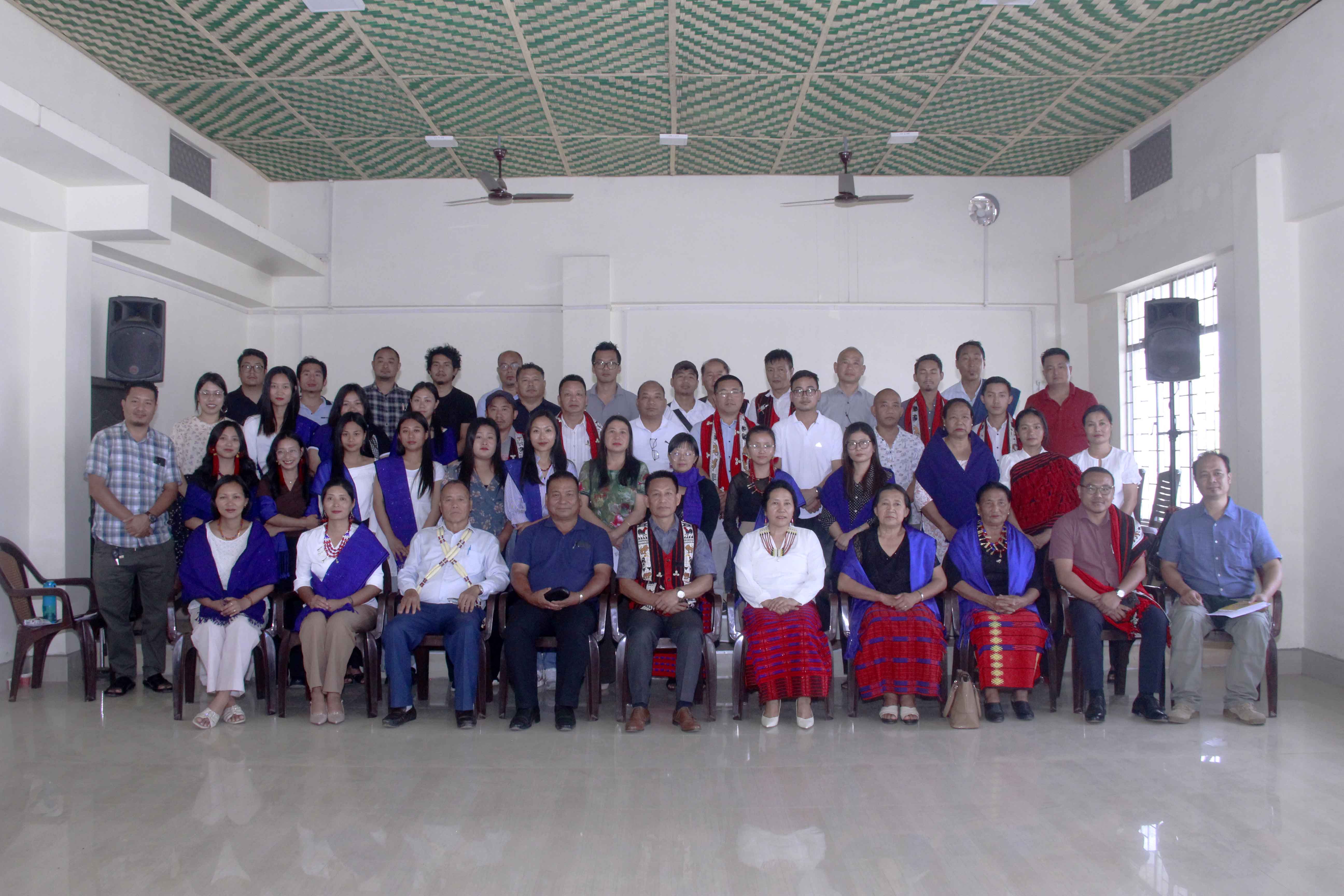
I Temjen Tzüdir and T Senka Ao along with participants and
officials from Ao Riju at Aor Kilem in Mokokchung town on April 26.
- MOKOKCHUNG — Faced
with imminent threats of extinction from everyday use, the Ao Riju (Ao Academy)
on April 26 convened an orientation programme for writers, poets, song writers
and authors at Aor Kilem in Mokokchung town on April 26 with an aim to
revitalise Ao language and standardised its spelling.
- Prominent language advocate I Temjen Tzüdir, publisher head
of Ao Riju, and Padmashree awardee, T Senka Ao, delivered speeches by urging
collective action to preserve and enrich Ao literature.
- Tzüdir, speaking on “Ao Oshi Tamentakdak Kimung Aser
Lirumedem” (The foundation of Ao literature and its uniformity), emphasised that
languages evolve over time but could also decline into extinction without
deliberate care.
- “Language carries strength and respect,” he said, lamenting
the lack of standardised spelling in Ao (Zulumen) until the 1980s, which has
left the language at a challenging threshold.
Also read: Governor felicitates students of St. Xavier College
- He warned that continued neglect of proper spelling could
burden future generations with greater linguistic losses. He, therefore, called
for simplifying the language to make it accessible, rooting its foundation in
traditional practices like attire (Sobusolentsü) and institutions like
dormitories (Arju or Tsüki).
- He highlighted the cultural unity reflected in traditional
songs and poetry, urging writers to maintain uniformity to preserve the
heritage.
- Tzüdir traced the Ao language's written origins to 1878,
crediting Dr. EW Clark and Mary Mead for their pioneering work including
introduction of the letter ‘ü’ from the German ‘ümlaut,’ expanding the Ao
alphabet to 27 letters.
- “The letter ‘ü’ is a precious part of our identity—use it with
care,” he urged, stressing its significance in maintaining linguistic
authenticity.
- Padmashree T Senka Ao, speaking on “Kaket Zülutsü Yayim Aser
Nüngdakbatem” (Methods and fundamentals for book writing), rooted the Ao
language in its culture, declaring, “If you don’t know our culture, you cannot
truly know our language.”
- He highlighted challenges in elevating indigenous languages,
noting that despite India’s 705 Scheduled Tribes, inclusion in the Eighth
Schedule remains elusive for many.
- Senka Ao criticised the overly complex language in
children’s books, which discourages young learners and pushes them toward
Alternative English.
- “Writing simple engaging books for preschool and primary
students is difficult but necessary,” he said, urging writers to tailor content
to young readers’ mental capacities.
- Expressing alarm at cultural erosion, he warned by saying,
“Foreign languages are eating up our language and culture.” He cautioned
against compromising Ao identity when integrating foreign influences and
stressed the need for imaginative translation.
- Senka Ao identified the Ao Riju and churches as critical
spaces for language revival, noting that churches, as major community hubs,
must prioritise language development in their activities.
- “We will be a lost nation if we don’t act now,” he said
emphasising that, “If you have your language, you have your identity. Lose your
language, and you lose your identity.”
- He has called for a linguistic revival to secure the Ao
community’s future.
- The president of Ao Senden, Marsanen Imsong, has lauded the
role of writers and described books as vessels of ideas that inspire and
enlighten.
- Describing books as timeless teachers, he stated that
writers critically analyse subjects and expressed visions that change the
world. However, he cautioned writers to wield their influence responsibly,
warning that poorly chosen words could spark conflict.
- “Use your imagination to enlighten, not to incite war or
hatred,” he urged.
- The seminar evoked participants to embrace their role as
stewards of the Ao language, blending cultural pride with practical steps to
ensure its survival and growth in an increasingly globalised world.
